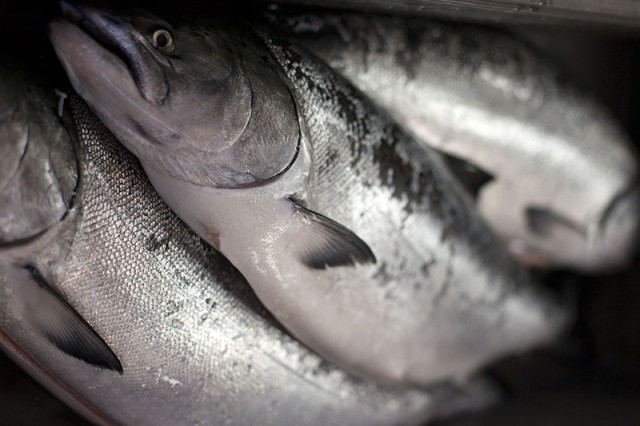By Jeff Barnard
Associated Press

A federal agency says it's taking another look at releasing water in Northern California's Klamath Basin to prevent the spread of disease among salmon returning to spawn in drought conditions.
A decision is likely this week following discussions with fisheries biologists and others, U.S. Bureau of Reclamation spokeswoman Janet Sierztutowski said from Sacramento.
The bureau previously denied a request from the Hoopa Valley Tribe to release water from Lewiston Dam on the Trinity River to prevent the spread of a parasite that attacks salmon in stagnant water, though the bureau said it would release some water if significant numbers of fish started dying.
Scientists for the tribe have said it would be too late by then. The idea is that higher flows make it more difficult for the parasite to swim. Once a significant number of fish are attacked, there is no stopping the parasite, known as Ich, short for Ichthyophthirius multifiliis, scientists said.